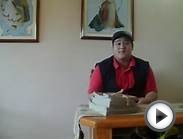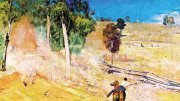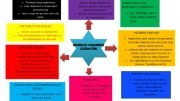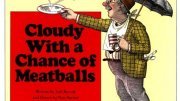The first thing people think when I tell them that I am studying English is that I must be mad. Either that or I want to be a teacher – in which case, they still think I am mad. The problem with studying English literature at university is that you will initially have to constantly explain your decision to those around you. If your family members do not have a history of studying an arts or humanities subject, then you will have to battle your way through their misconceptions – but once you reach university, it is pure bliss. As you walk along the brightly tiled hallways, no longer are you asked about why you want to study a subject that involves a lot of reading, or repeatedly told that you should definitely write your own novel and make millions.
Here are some of the common myths and misconceptions about English literature degrees I’ve encountered…
1. English literature degrees are “just for fun”.
 One of the main misconceptions about English literature degrees is that students do it purely for fun, and not because it is part of their career plan. People often think that there is no future in an English degree, as the only occupations you can get into are teaching or journalism. Of course, they are utterly wrong. An English degree can take you many places, such as marketing, management, publishing, PR, editing – and yes, you can become a writer, librarian or teacher if you so wish. My personal choice is journalism, but everyone is different.
One of the main misconceptions about English literature degrees is that students do it purely for fun, and not because it is part of their career plan. People often think that there is no future in an English degree, as the only occupations you can get into are teaching or journalism. Of course, they are utterly wrong. An English degree can take you many places, such as marketing, management, publishing, PR, editing – and yes, you can become a writer, librarian or teacher if you so wish. My personal choice is journalism, but everyone is different.
2. Studying English is an easy option.
Another misconception is that studying English literature is an easy way out. Again, wrong. What people get confused by is the amount of contact hours English literature students normally have per week. In my case, we have four modules per semester, which means a lecture and seminar for each; so we get eight hours of teaching weekly. Think this means it’s easy? Think again.
 Remember those times when you were studying English at school and your teachers told you they couldn’t keep spoon-feeding you the answers? There was a good reason for that, because most of the work English students do is independent. You are required to do a lot of independent reading, independent research and independent writing. Just because there are not as many compulsory lessons as in other degrees, does not mean that the work is less difficult. You get more freedom with your time, but that comes hand in hand with managing it responsibly. The first year can feel quite relaxed as the only time serious effort is required is when it is time to hand in your coursework or sit your exam; but this apparent lull can feel quite unsettling after the intensity of A-levels.
Remember those times when you were studying English at school and your teachers told you they couldn’t keep spoon-feeding you the answers? There was a good reason for that, because most of the work English students do is independent. You are required to do a lot of independent reading, independent research and independent writing. Just because there are not as many compulsory lessons as in other degrees, does not mean that the work is less difficult. You get more freedom with your time, but that comes hand in hand with managing it responsibly. The first year can feel quite relaxed as the only time serious effort is required is when it is time to hand in your coursework or sit your exam; but this apparent lull can feel quite unsettling after the intensity of A-levels.
Source: www.topuniversities.com
You might also like:


Related posts:
- World Literature for Children
- World Literature in Theory
- World Literature Resources
- World Literature Forum
- Literature genres

























This book was added to the syllabus of the intro world literature class I'm teaching this fall by one of the higher-ups, so I read it today so as to figure out what to do with it. To my surprise (I dunno why I'm so cynical, but I guess this should teach me a lesson), it's actually a really great book. Extremely useful, accessible, and even entertaining. It actually deserves to be required reading in any world literature class! Who woulda thunk, eh?